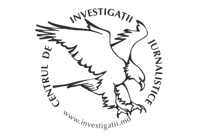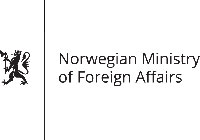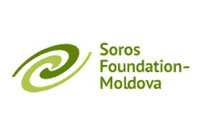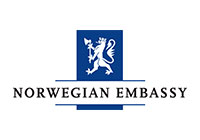.jpg)
Major closed-door cases, different judgments passed in similar circumstances, urgent or delayed criminal cases marked the year 2018. Domnica Manole, former judge of the Chisinau Court of Appeal, Vadim Vieru, Promo-Lex lawyer, on one hand, and Viorel Morari, Head of the Anticorruption Prosecutor's Office, on the other hand, had a controversial discussion about political interference in the Moldovan judiciary, in the meeting of the Investigative Journalism Club, held by the Center for Investigative Journalism on Thursday, December 13.
The length of the case examination depends on several factors, said Viorel Morari, head of the Anticorruption Prosecutor's Office, suggesting that prosecutors are not responsible for delays in the lawsuits. "Every time we take into account the specificity of the case. For example, someone has collaborated with the criminal prosecution body while in other cases; MEP’s interfered in the justice process. As for a criminal case, there was a letter of support by the Vice-President of the European Parliament", said Viorel Morari.
Lawyer Vadim Vieru from Promo-LEX Association pointed that in some criminal cases the letters of MEPs would not have the same effect. "In some cases, these letters did not help. I'll refer to the Petrenco case. A group of 10 MEPs has submitted such letters of guarantee that the preventive measure of arrest should not be applied to the Petrenco group. Obviously, this did not work", said Vadim Vieru.
Viorel Morari spotted prior cases in the Anticorruption Prosecutor's Office, pointing out that prosecutors are taking the necessary steps to speed up the bank fraud investigation process.
"Everyone wants us to speed up the cases and they are right. Given current circumstances, we strive to investigate all the files to ensure a reasonable time for prosecution. Priority is currently being given to investigating high-level corruption offenses such as investigating corruption as a phenomenon for getting driving licenses, public procurement fraud, corruption at the Customs, at the National Police Inspectorate, at the Fiscal Service, even at the Prosecutor's Office, investigating bank fraud and laundromat".
Viorel Morari complained that the high volume of work and the insufficient number of employees lead to the delays in criminal proceedings. "At the moment, the Anticorruption Prosecutor's Office has vacancies as prosecutor. Workload increases every year. As for prioritization, today is bank fraud, tomorrow will be different, etc. But when the mandate ends or circumstances change, the first thing done is front controls. A frontal control was performed in 2013 and I was applied disciplinary procedure because some cases were not investigated. We considered that other cases are prior”, said the chief prosecutor.
Also, Morari admitted the issues in justice field and the criticism: "We have problems with justice; it is true, this is confirmed by sociological surveys, I cannot deny it. We have problems with justice, and this is also proved by the cases we handle, I cannot deny it. I understand and I admit that it's a problem, but I personally take action in line with my duties. "
Domnica Manole, a former judge, noted that, while examining cases sued against some exponents of democratic governance, each judge asks about the consequences of passing a judgement. "If pressure is put on the judge and these cases are common in Moldova and the judge disagree to favour the accused, he / she risks being prosecuted and harassed in the courts", she said.
Lawyer Vadim Vieru referred to the influence of politics in criminal cases examination. "The Davitean case is relevant. It is a case of torture, with political interference, the convict was not assisted and an effective investigation was not carried out. It is a case that reveals the problems related to torture investigation in the penitentiary system. It shows that if there are political interferences in some trials, probably, the decisions taken by the prosecutors will be different", said the defender.
Meeting of the Investigative Journalists' Club "Fair Justice vs Selective Justice. Retrospective of 2018 "is part of the project" Mobilizing Civil Society to Support Judicial Integrity in the Republic of Moldova", organized by the Center for Investigative Journalism and Freedom House, with the financial support of the US State Department.
Textele de pe pagina web a Centrului de Investigații Jurnalistice www.anticoruptie.md sunt realizate de jurnaliști, cu respectarea normelor deontologice și sunt protejate de dreptul de autor. Preluarea textelor știrilor și a investigațiilor jurnalistice se realizează în limita maximă de 500 de semne. În mod obligatoriu, în cazul paginilor web (portaluri, agenții, instituţii media sau bloguri) trebuie indicat şi linkul direct la articolul preluat de pe www.anticoruptie.md în primul alineat, iar în cazul posturilor de radio și TV – se citează obligatoriu sursa.
Preluarea integrală a textelor se poate realiza doar în condiţiile unui acord prealabil semnat cu Centrul de Investigații Jurnalistice.
Donors:






Partners:









